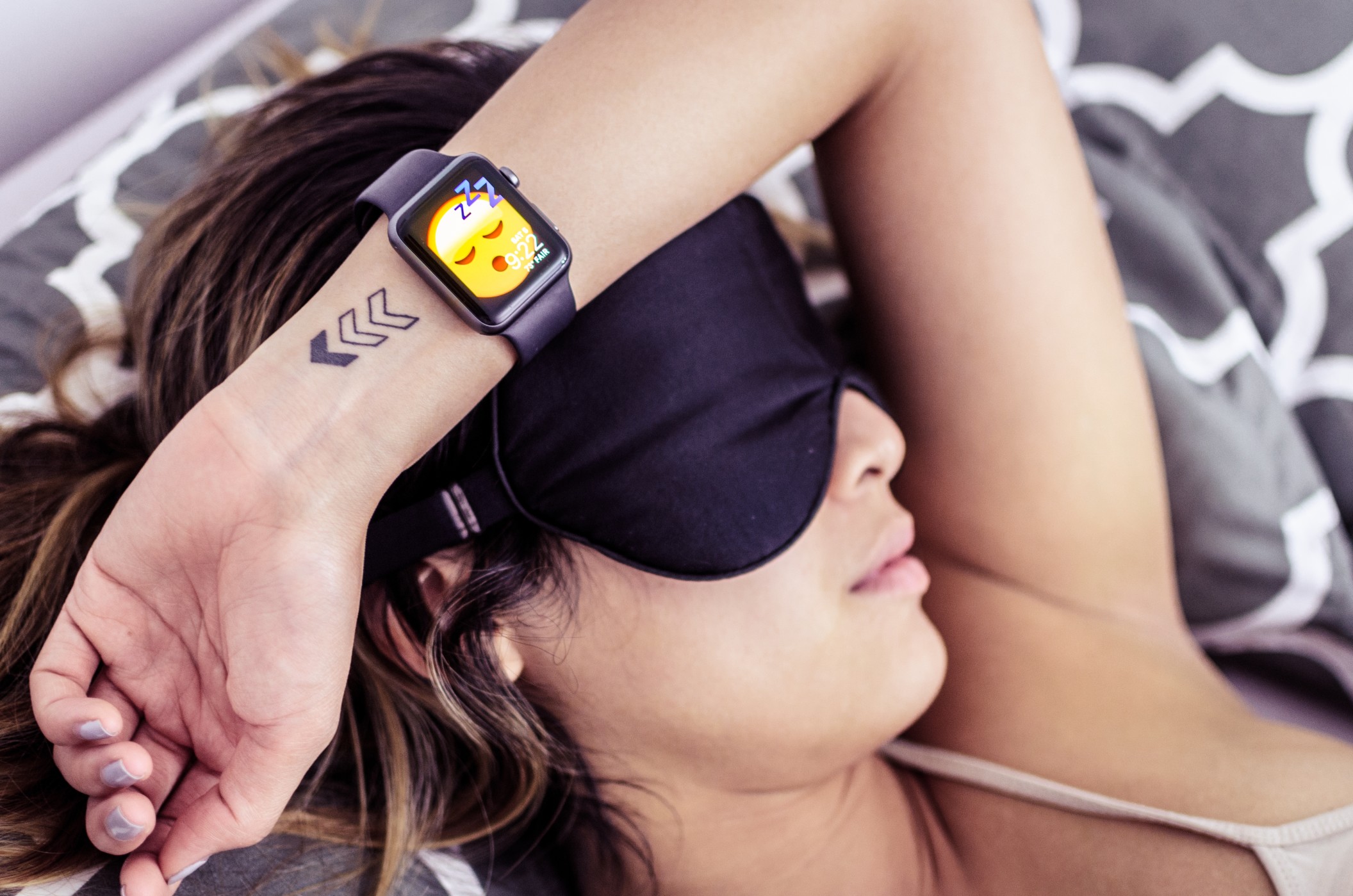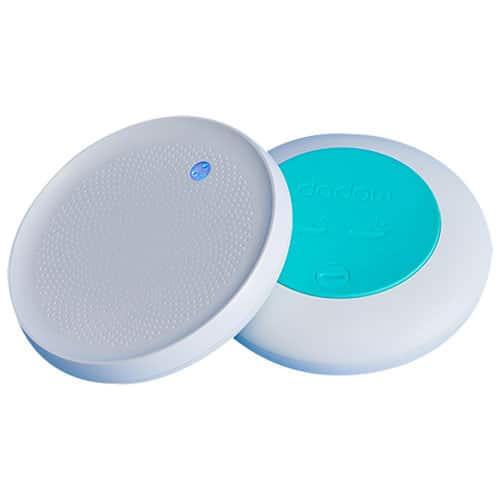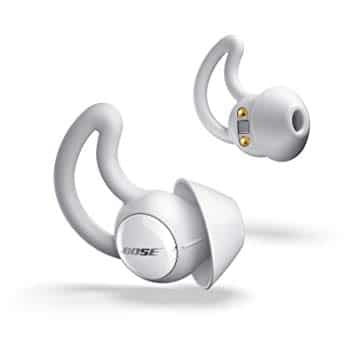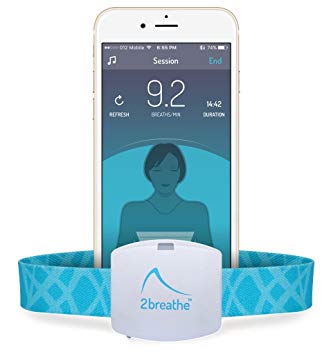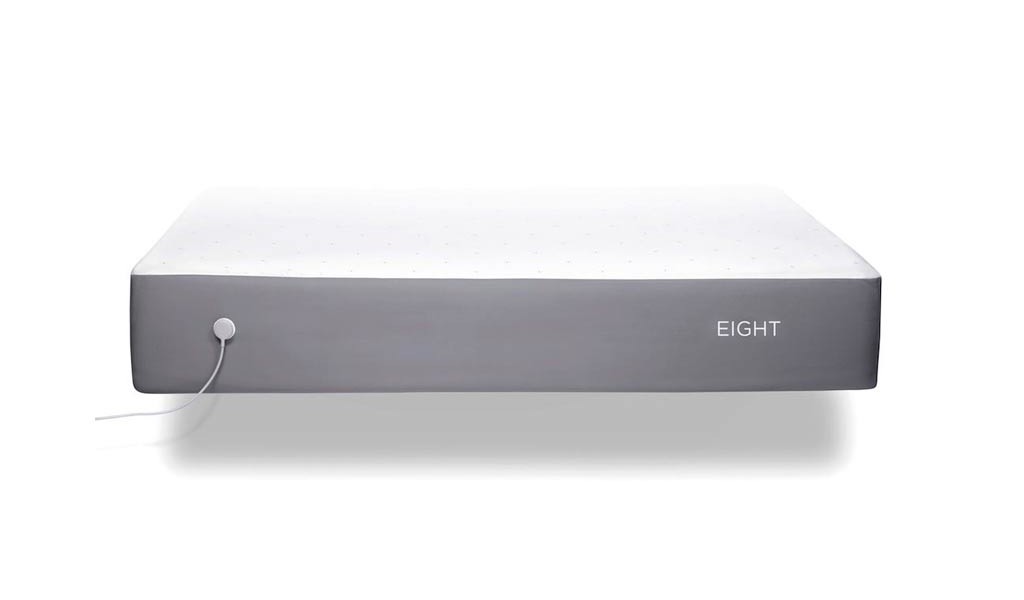Why is it so hard to get a good night’s sleep? And are there any new high-tech sleep products that actually work? The first question is highly situational. But the answer to the second one is yes. Advancements in luxury sleep technology products continue at a rapid pace. With CES 2020 behind us, our correspondent Jillian Tangen has the roundup of the latest in luxury sleep tech.
what’s the latest in luxury sleep tech?
If you’ve been following our ongoing sleep series, you’re well aware that people are sleeping less than ever these days. According to the Sleep Foundation, more than 60% of Americans are getting less than the eight hours of nightly rest the average adult requires. There are so many new sleep technology products on the market, but are there any that actually work?
Join our community
For access to insider ideas and information on the world of luxury, sign up for our Dandelion Chandelier newsletter. And see luxury in a new light.
Previously, we’ve covered how investing in a luxury mattress, top notch linens or even the right sleepwear can improve the quality of our sleep. To round out our investigation of the best ways to get some zzz’s, we’re sharing the results of our round-up of some of the newest and best sleep technology and sleep aides on the market.
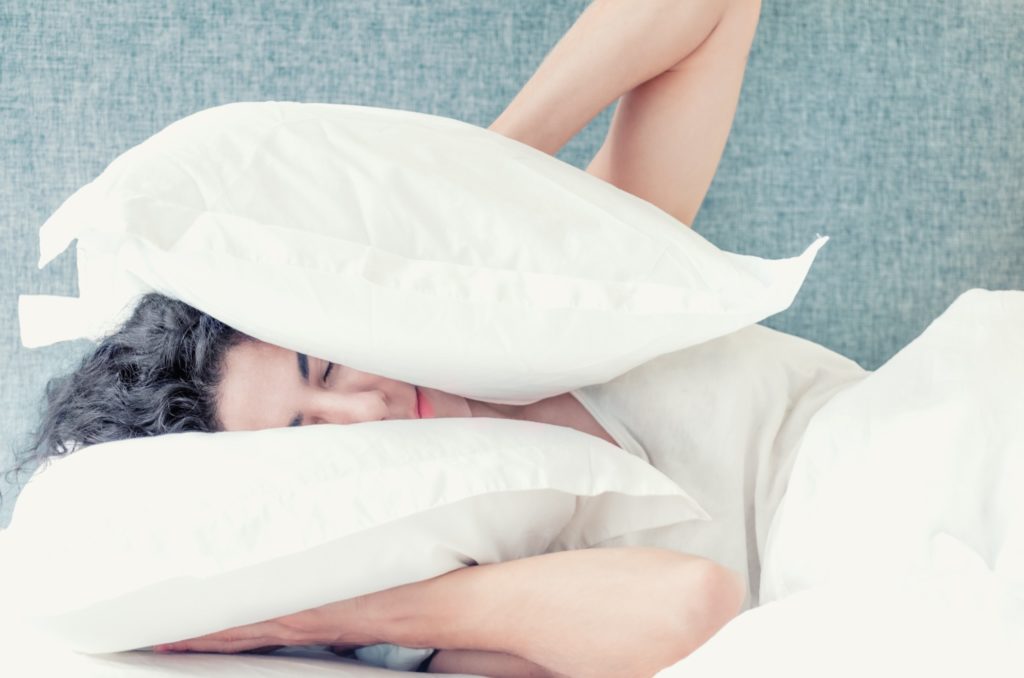
New high-tech sleep products
Lots of people don’t want to turn to medication to help them fall asleep. This list provides a number of tools that may work just as well for you.
what are the best sleep technology products right now?
We’ve grouped them around each of our senses, as generally these sleep aides and sleep tech tools — whether old-school or super-high tech — focus on one of our senses. At the end we share a couple of total-body sleep tech devices, too.
1. the best sleep technology products: optimizing light
We’re with the Luddites on this one: you can never go wrong with a simple sleep mask to block out the light and your surroundings. Personally, we love this Old School cozy cashmere Morgan Lane Sleepy Lids Eye Mask ($198).
But if you’re seeking something high-tech, there are lots of options. Starting with this sleep mask from Remee ($41.90) that enhances REM sleep. During REM sleep, blood flow to the brain decreases and is redirected toward the muscles, facilitating rest and recovery.
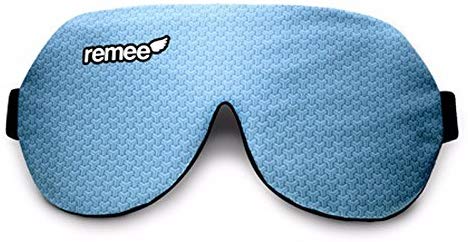
The best sleep technology products right now: Remee Lucid Dream Mask, Courtesy Photo.
By using customizable light signals, this mask is intended to foster deeper sleep. The company says that users report an increase in their dream recall and in the vividness of their dreams.
Philips Hue lights ($199) let you create a setting that mimics the sunset – it gradually dims the lights as you drift off to sleep. You can also switch your lights to a relaxing orange color at night, to signal your brain that it’s time to wind down. Then in the morning, you can trigger a wake up light that will gradually brighten, just like a new sunrise.
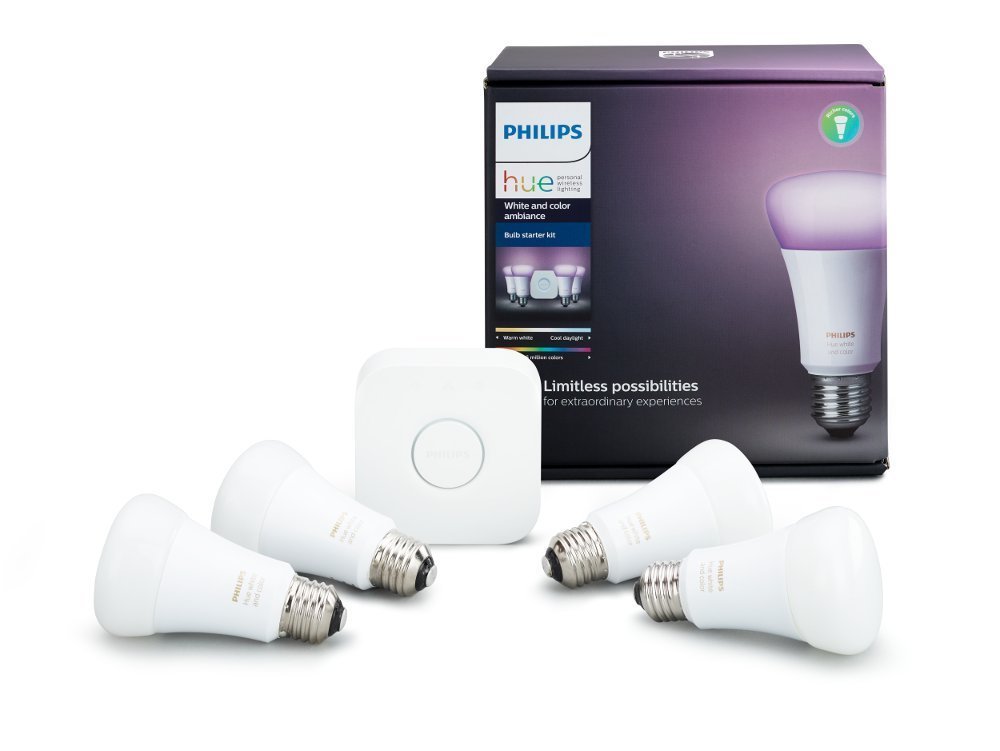
The best new sleep technology products that work: Philips Hue Lights. Courtesy Photo.
Does it take you an hour to fall asleep? Dodow ($59) is a metronome with a light system that teaches you how to fall asleep naturally, without taking any medication in 25 minutes or less. It uses a hypnotizing blue light to coordinate and slow down your breath, to stimulate your body’s natural resting state.
Finally, in terms of luxury sleep tech products focused on optimizing light levels and what you see, there’s the Hatch Restore. It combines sleep sounds, a bedside reading light, and a sunrise alarm. Unlike the plethora of multi-tasking luxury tech devices, its only function is helping to regulate your sleep routine. And so far, The Restore is garnering strong word of mouth, at least from the fashion and design press.
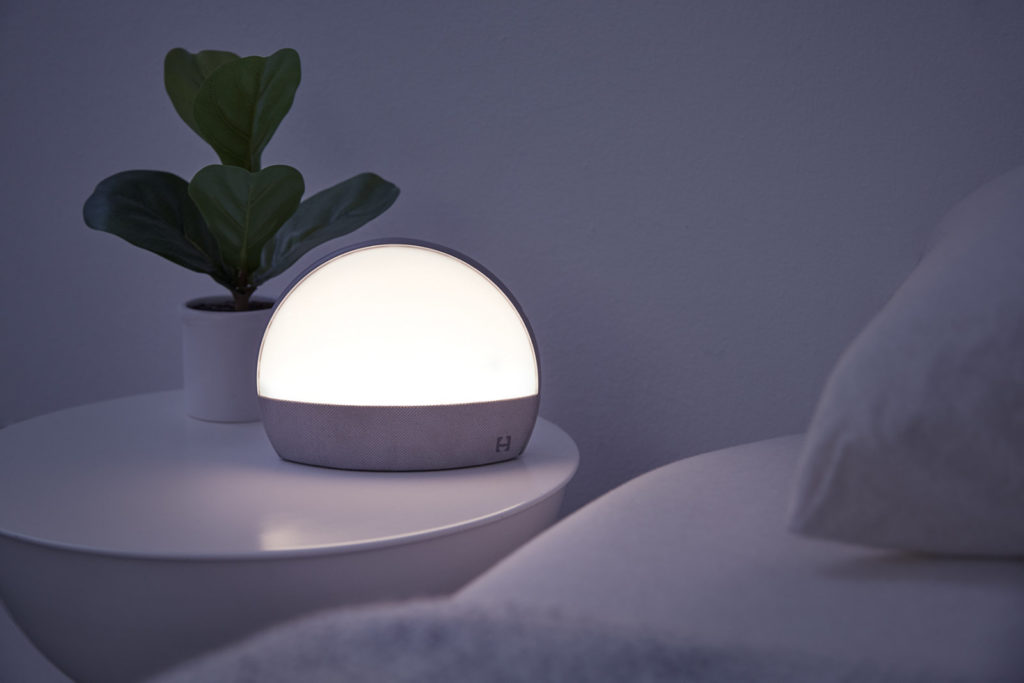
The best new sleep technology products that work: the Hatch smart light. Photo Credit: Endgadget.
You can program your bedtime routine (along with accompanying light preferences) via an app down to the minute, from reading to meditation to lights out. Select the sounds (like white noise, or rain). And set your wake-up alarm, too. Another cool feature? If you wake up in the middle of the night, you can program the device so all you have to do is push a button, and it will take you through your sleep sounds routine again from scratch.
2. the best sleep technology products: optimizing sound
We’ve all been there – those nights when you just can’t sleep because of annoying sounds like snoring, traffic and loud neighbors. Or those times when you’re on an overnight flight and your seatmate plans to be up all night long.
Sleep tech devices for falling asleep
Bose has a product to address those occasions: Bose Sleepbuds ($249). Designed for comfort, these tin wireless ear jacks deliver engineered sounds that mask unwanted noise, and help lull you to sleep.
Want to drift off to the peaceful sound of crickets or the wind in a meadow? How about birdsong and buzzing bees? Ocean waves, anyone? How about crying seagulls, barking seals and a foghorn? Whatever it takes, the Sound + Sleep High Fidelity Sound Machine ($79.95) probably has it.
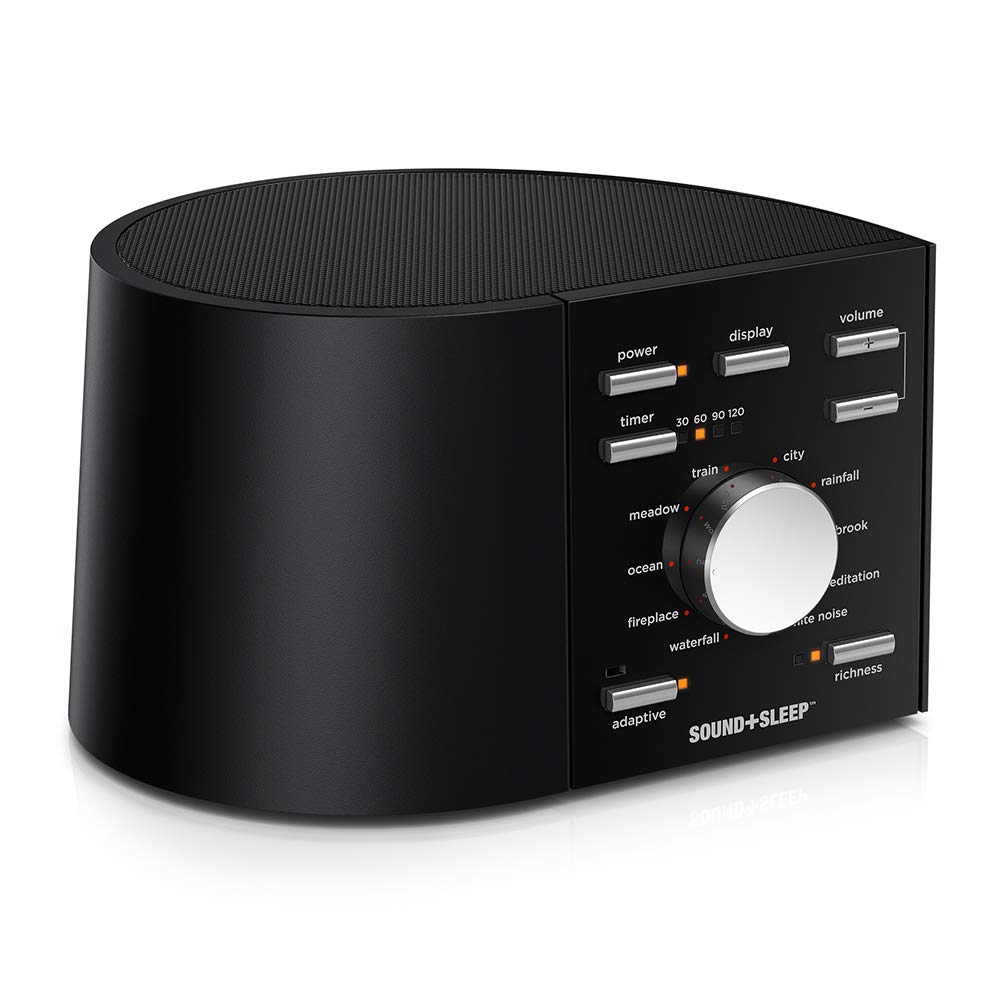
The best new sleep technology products that work: Sound + Sleep High Fidelity Sound Machine. Courtesy Photo.
Options include white noise, pink noise, and brown noise. In addition to just sounds, the machine “listens” to the ambient noise in your bedroom, and then automatically adjusts its volume as necessary to help protect your sleep. That. Is. So. Cool.
Sharing a space with a noisy sleeper? Or perhaps you’re the noisy sleeper? Smart Nora ($299) detects snoring throughout the night. Insert it into a pillow, and it will gently adjust the pillow’s angle if the sleeper begins to snore. This adjustment stimulates the throat muscles, helping natural (and quiet) breathing to resume.
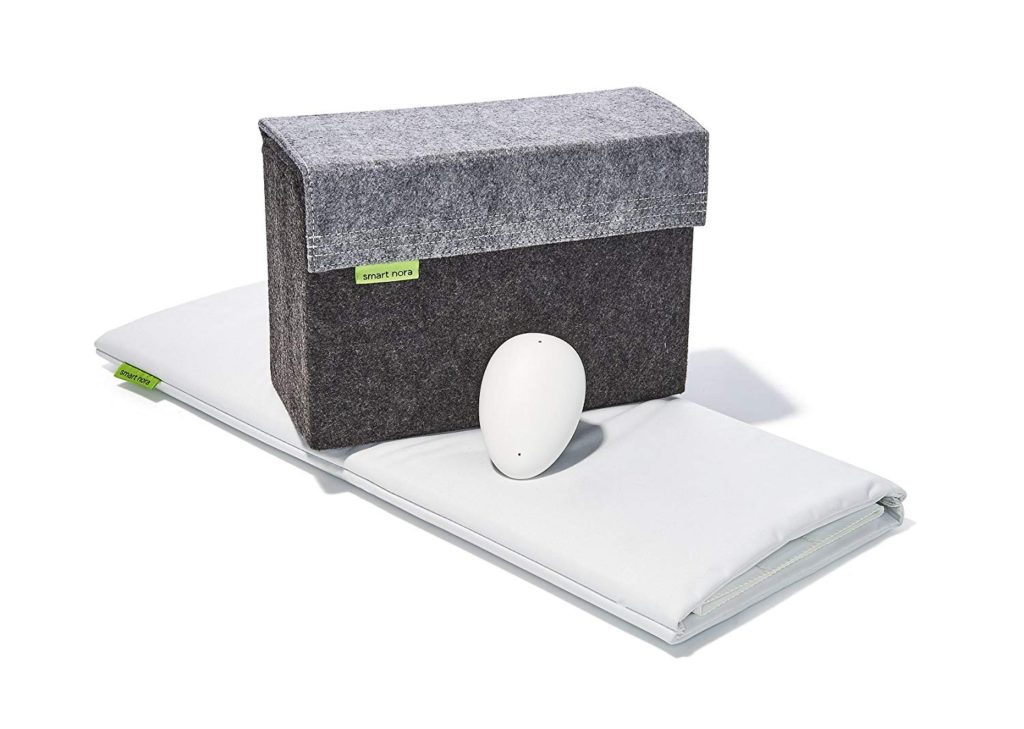
The latest new high-tech sleep products: Smart Nora Snore Solution. Courtesy Photo.
Calm ($12.99 per month) is an app focused on mindfulness and meditation to help you sleep better. By practicing guided meditation at night, users can ease anxiety and experience deeper sleep.
Another great app to help with meditation and mindfulness is Headspace ($7.99 per month). It sends users push notifications with reminders to meditate throughout the day and in the evening. Each session takes only a few minutes.
Finally, Peloton has a mediation app as part of its suite of digital fitness and wellness offerings. There’s a 30-day free trial period, and the app gives subscribers access to the full range of Peloton workouts, yoga classes and more. (Full disclosure, our CEO is on the board of Peloton).
Sleep tech devices for staying asleep
The Pzizz ($1.99 – $319.99) app is useful for overnight and also for daytime naps. It uses psycho-acoustic principles to create dreamscapes designed to help you fall asleep fast, stay asleep and wake up feeling refreshed. Here you can listen to soothing, movie-style soundtracks that you can set to fade out after an hour or so. The app also offers narration in both male and female voices to soothe and calm.
From world-renowned industrial designer Yves Béhar is the Dreem sleep headband ($499). The headband contains EEG sensors to monitor your brain function during sleep, then plays sounds using bone conduction (meaning it conducts sound through the skull to the inner ear so a sleeping partner won’t overhear it) to help you fall asleep, stay asleep or wake up. The company claims Dreem can reduce the time it takes to fall asleep by 30 percent and improve the quality of deep sleep by 32 percent. It also features a smart alarm that adjusts your wake-up call to when you are in the lightest part of your sleep.
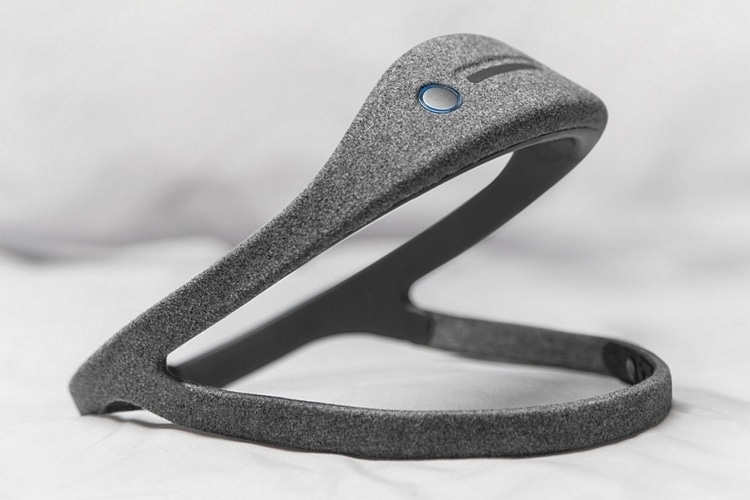
The latest new high-tech sleep products: Dreem Sleep Solution. Courtesy Photo.
Finally, Philips debuted the newest version of its SmartSleep Deep Sleep Headband ($399.99) at CES 2020. The headband now includes soundscapes to help you fall asleep, and a SmartAlarm that wakes sleepers up in the lightest stage of sleep, within 30 minutes of the desired wake time. You can also track your REM cycle and sleep patterns via an app.
3. the best sleep technology products: scent and breathing
Sometimes “sleep tech” is pretty basic. For example, you shouldn’t overlook the overall scent surrounding you when you’re trying to sleep better.
low-tech ways to enhance scent for sleeping
Thanks to a natural super-blend of lavender, vetiver and chamomile, the scent of This Works Deep Sleep Pillow Spray ($29) will help to calm both your mind and body. Just spray it across your pillow (and sheets, if you like) and prepare to fall asleep faster and wake feeling more refreshed.
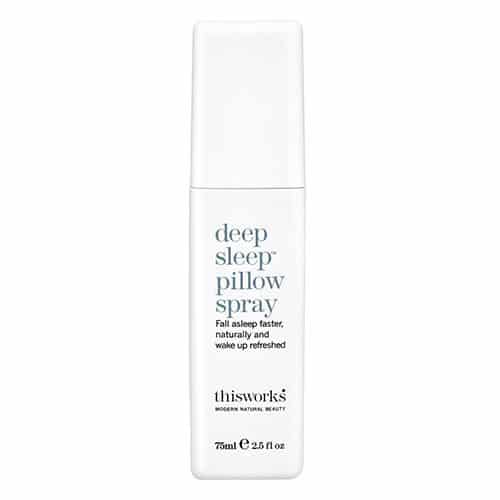
The best new sleep technology products that work: This Works Deep Sleep Pillow Spray. Courtesy Photo.
Placing an essential oil diffuser in your bedroom can be a great help in easing stress and physical tension. If you find yourself plagued with thoughts of the day ahead before falling asleep, try Molton Brown’s Ylang-Ylang Aroma Reeds ($55).
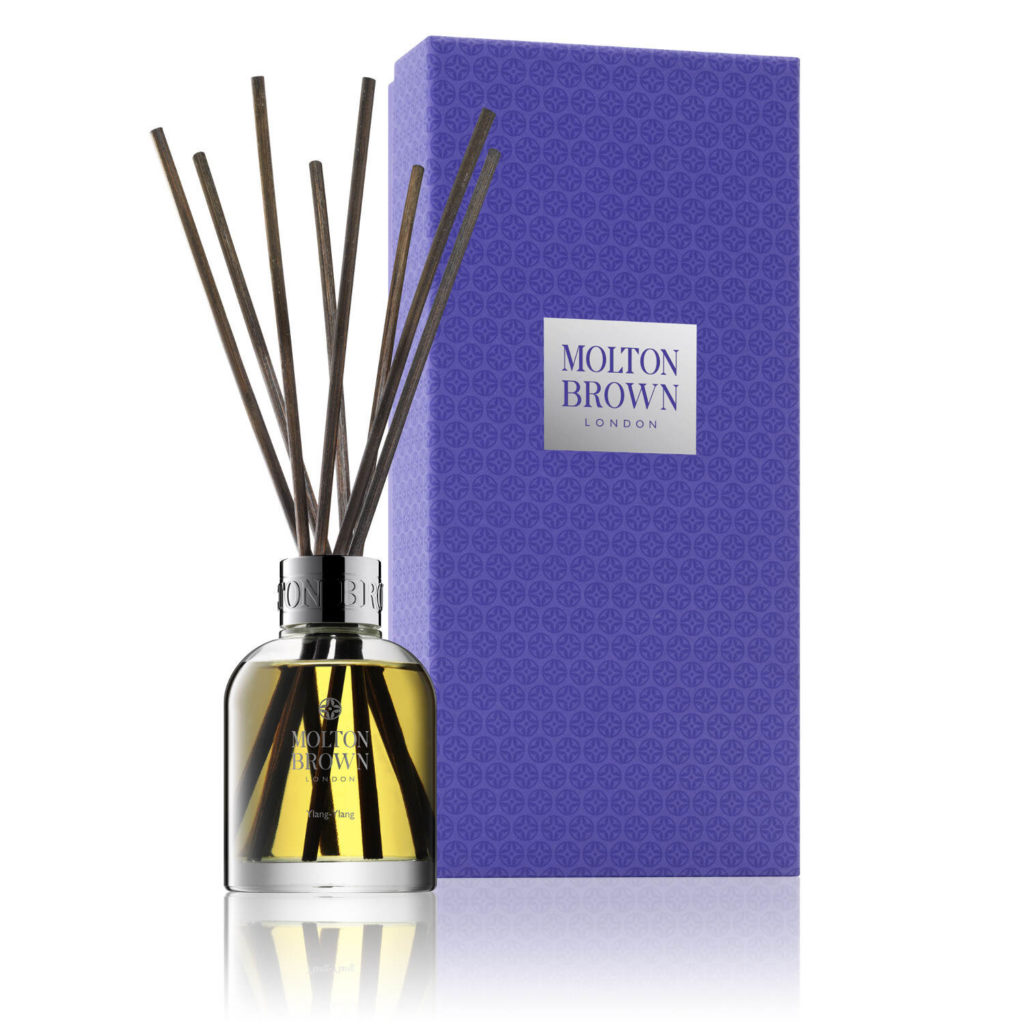
The best new sleep technology products that work: Moulton Brown Ylang Ylang Aroma Reed Diffuser. Courtesy Photo.
high-tech ways to enhance scent for sleeping
Aromarest ($119.99) helps users get their sleep cycles under control with help from their senses of sight, smell and hearing. It’s an all-in-one color-changing bedside lamp, noise machine and aromatherapy device that you can control via an app on your phone. Warm tones of light, reminiscent of the sunset, help you wind down and stimulate melatonin excretion, while blue light does the opposite. Certain scents like lavender may make you sleepy, while other fragrances may stimulate you to get out of bed (like coffee or pancakes).
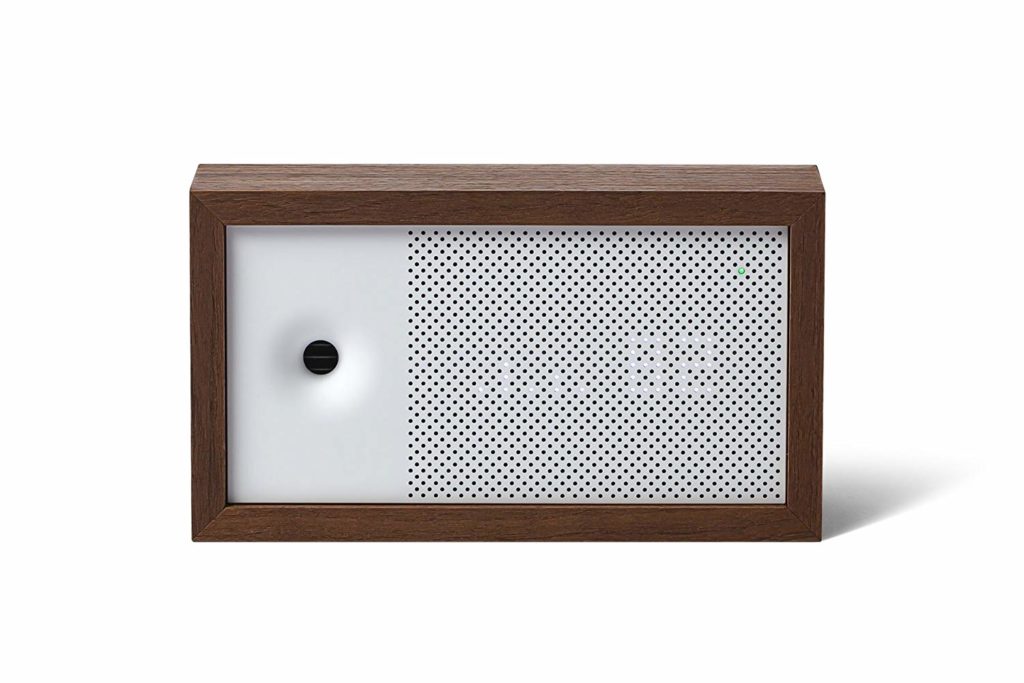
The latest new high-tech sleep products: Awair 2nd edition. Courtesy Photo.
Getting a good night’s sleep requires a good sleep environment and that includes air quality. The Awair 2nd Edition device ($199) tracks toxins and chemicals in room air, and gives you a sleep report every morning that analyzes your bedroom and tells you how your air affects your quality of sleep. We love that it comes in a baby-friendly version too!
The 2breathe Sleep Inducer ($179.95) is a belt that uses guided breathing exercises to help you fall asleep faster and stay asleep longer.
2breathe’s technology grew out of RESPeRATE, the world’s only non drug medical device cleared by the FDA for lowering blood pressure and reducing stress. The company believes that in at least 7 days users will see a noticeable improvement in their sleep.
4. the best sleep technology products: tactile devices
blankets and pillows
Research has shown that sleeping underneath a weighted blanket can feel calming, reducing anxiety and hastening sleep. The Gravity Blanket ($249) is a premium-grade, therapeutic weighted blanket that’s engineered to weigh approximately 10% of your body weight. Like a “thunder shirt” for a dog, this blanket helps relax the nervous system by simulating the feeling of being held or hugged. That, in turn, increases serotonin and melatonin levels, and decreases cortisol levels – improving your mood and promoting restful sleep.
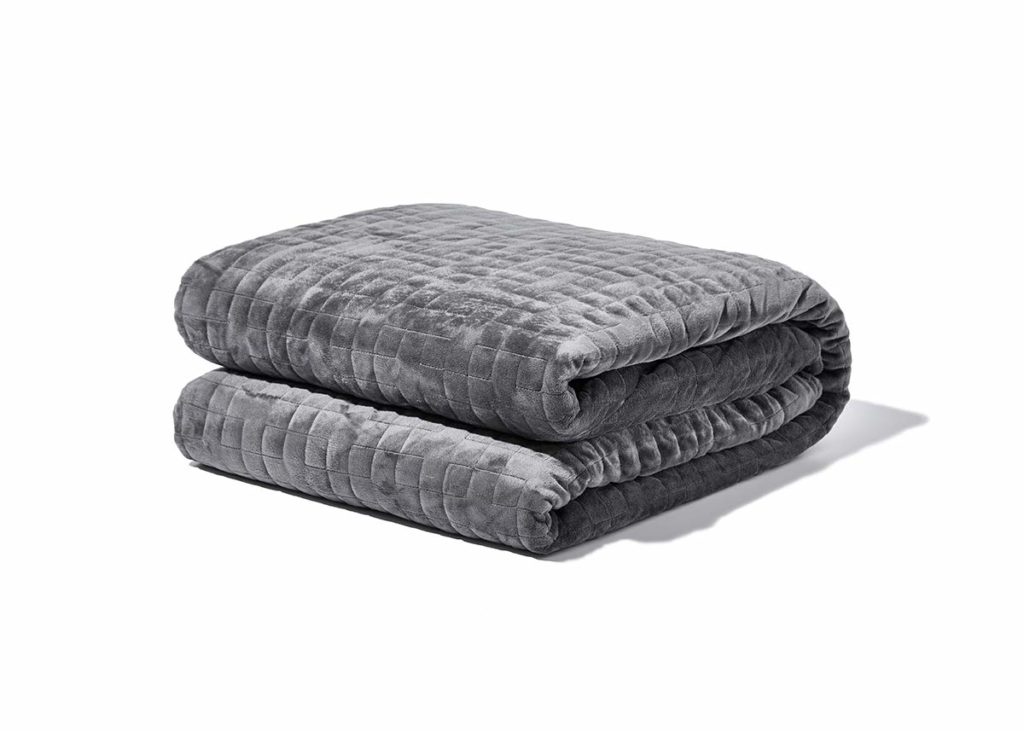
The best new sleep technology products that work: The Gravity Blanket. Courtesy Photo.
The Somnox ($599) is a cuddly robotic pillow designed to simulate breathing and play soothing music to help you fall asleep. The pillow expands and contracts in a breathing pattern that helps to lower stress. Users can synchronize their own breath with the machine, and as a result fall asleep sooner. The pillow also plays lullabies, white noise, and audio books – it also leads guided meditation. And once you fall asleep, the pillow goes to sleep too. Awww.
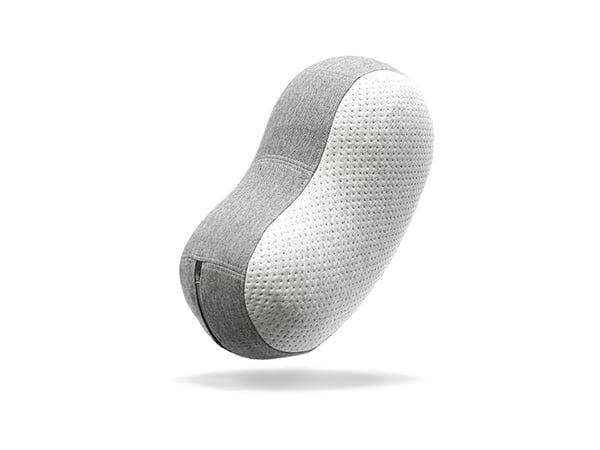
New high-tech sleep products: The Somnox Sleep Robot. Courtesy Photo.
If you’re a side sleeper, you know the struggle of finding the right position for your top arm. The Sleep Yoga Side Sleeper Arm Rest ($37.98) is here to help. This oddly-shaped pillow is actually an armrest for side sleepers. When you rest your top arm on the pillow, your shoulder will be in better alignment than if it were just hanging down in front of you.
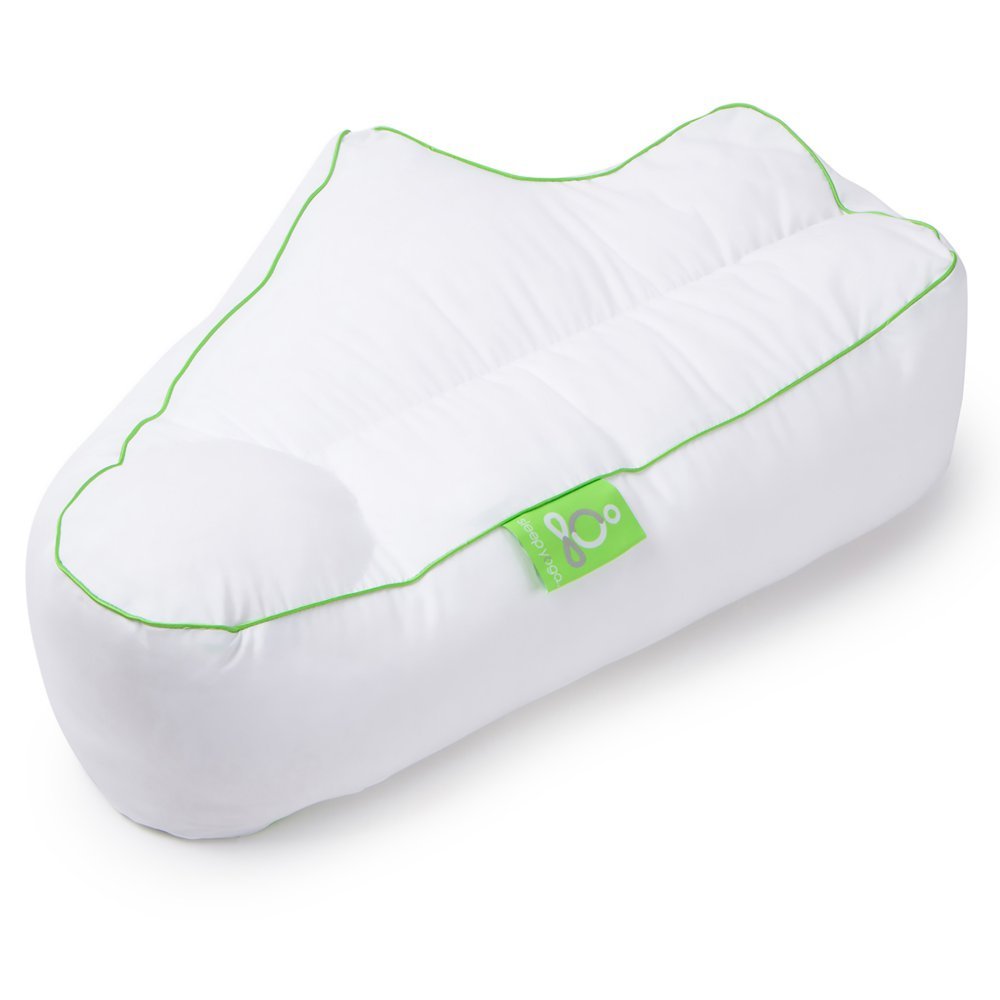
The latest in luxury sleep tech: Sleep Yoga side sleeper arm rest pillow. Courtesy Photo.
Body Temperature control
Ebb Therapeutics debuted its wearable sleep device at CES 2020. It’s a fluid-filled headband ($349) that cools your forehead with an intelligent algorithm to help you maintain an optimal temperature range throughout the night and reduce brain activity.
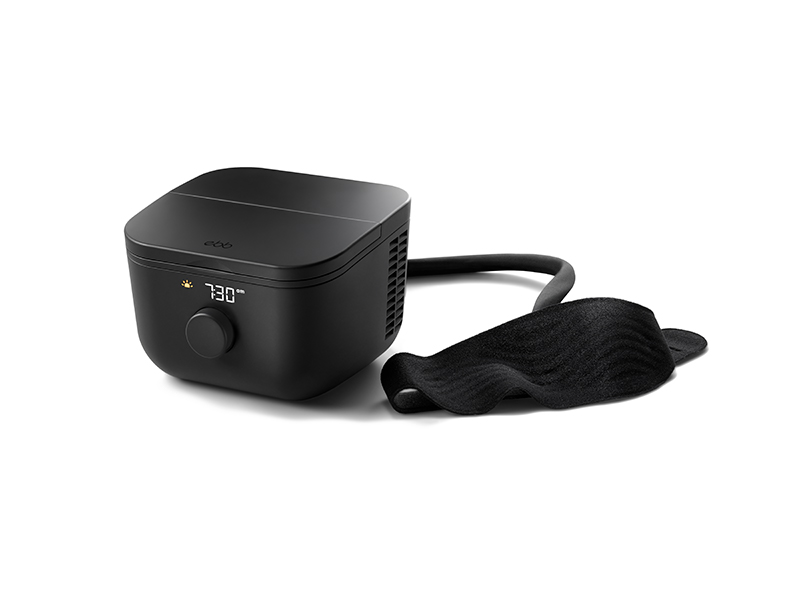
The latest in luxury sleep tech: Ebb Therapeutics Headband. Courtesy Photo.
5. the best sleep technology products: total body devices
smart mattresses
There are a number of smart mattresses on the market right now. For example, the Eight Sleep four-layer high-density foam mattress offers a daily sleep report on sleep phases, sleep quality, heart rate and respiratory rate. It also has built-in warming capabilities for both sides of the bed, so neither you nor your partner should ever be too cold or too hot. Mattresses from Eight also connect with almost every smart home device (so it can open the blinds, dim or brighten the lights, and adjust the room temperature), and has a smart alarm to help you awaken at the optimal time every morning (within a range that you set). And since it connects to Amazon’s Echo, you can do all of this by voice. Base models start at $700.
The new Sleep Number Climate360 smart bed lets you track your heart rate and breathing rate through its companion app to look for trends and help you sleep better. It uses personalized temperature control to help you fall asleep faster and stay asleep throughout the night. The bed adjusts the temperature on each side throughout the night, warming and cooling based on the sleeper’s natural cycle and preferences. expected to be available in 2021. It will cost $8,000.
The $4,950 king-size Alexa Dux bed from Duxiana will be available in queen, king and California king sizes and include an Alexa speaker to help you with your bedtime routines. The company says it will be available online and in Duxiana stores throughout the US this May.
Sleep and nighttime medical health trackers
The iFit Sleep HR ($119) is a dedicated sleep-tracking device that slips under your mattress. It’s the size of a salad plate, and so sensitive that it works with mattresses up to 20 inches thick.
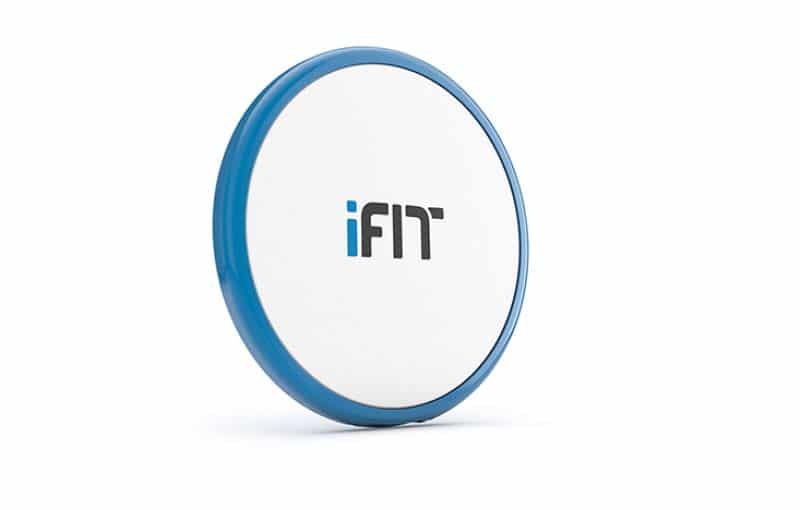
The latest in luxury sleep tech: The iFit Sleep HR. Courtesy Photo.
You download the companion app, pair the device to your phone or tablet via Bluetooth, and drift off. In the morning, you can generate a sleep report card showing your average heart and respiratory rates, how long it took you to fall asleep, how many times you woke up and how long you’re in each sleep cycle. Scores are tracked over time and and can be viewed on a graph. And you can set a “smart” alarm so the sensor will look for the lightest part of your sleep cycle to wake you.
SleepScore Max ($149.99) is a bedside sleep tracker that only requires proximity to track data, not contact – so no need to wear a device to bed. It looks like a tiny speaker and sends waves that reflects off the skin’s perspiration and it picks up movement to one tenth of a millimeter, monitoring both your breathing and sleep patterns.
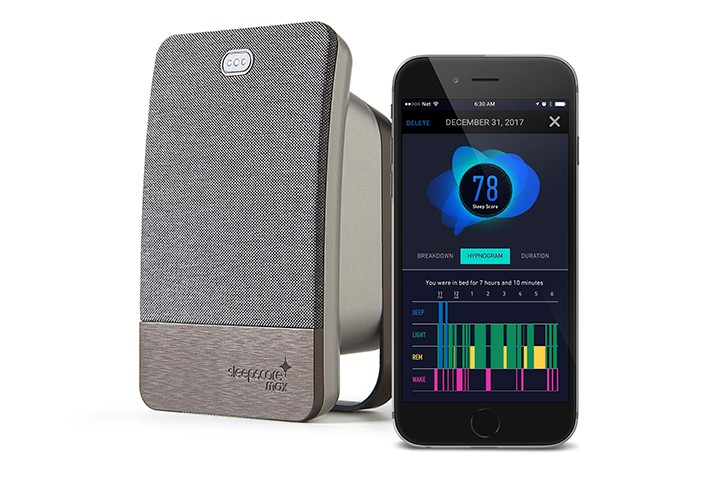
The latest in luxury sleep tech: The Sleepscore Max. Courtesy Photo.
It also provides personalized, actionable advice about what you can do to improve your sleep, keeping in mind your daytime personal habits (exercise level, coffee and alcohol intake, self reported stress level, etc.).
The Urgonight padded headband ($500), expected to hit the market in June 2020, promises to train your brain during the day to help you sleep better at night. The device connects to an app to measure your EEG, and uses games to teach you how to control the brain waves that impact sleep. To be used for 20 minutes a day, three days a week, the device is meant to bring technology that would normally only be available in a sleep lab into your home.
The latest in luxury sleep tech is the new Withings ScanWatch, a hybrid wearable with an incredible away of medical features in addition to timekeeping and fitness tracking. It has an ECG and can monitor for atrial fibrillation, blood oxygen levels and possible sleep apnea. The device’s SpO2 sensor measures oxygen saturation levels and identifies when they’re too low — an indicator of the common sleep condition. (It does this by emitting and absorbing a light wave passing through blood vessels.)
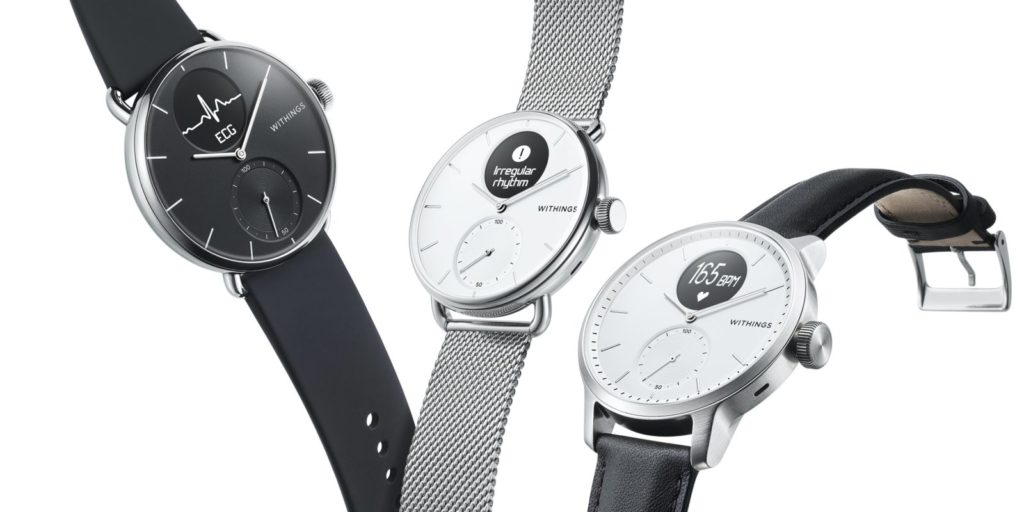
The new high-tech sleep products that actually work: the next-generation Withings ScanWatch 2. Courtesy Photo.
The ScanWatch also tracks sleep length, depth and quality and provides a nightly sleep score. The sleep apnea detection functionality is undergoing FDA clearance now, and the company hopes to ship the product by the middle of 2020.
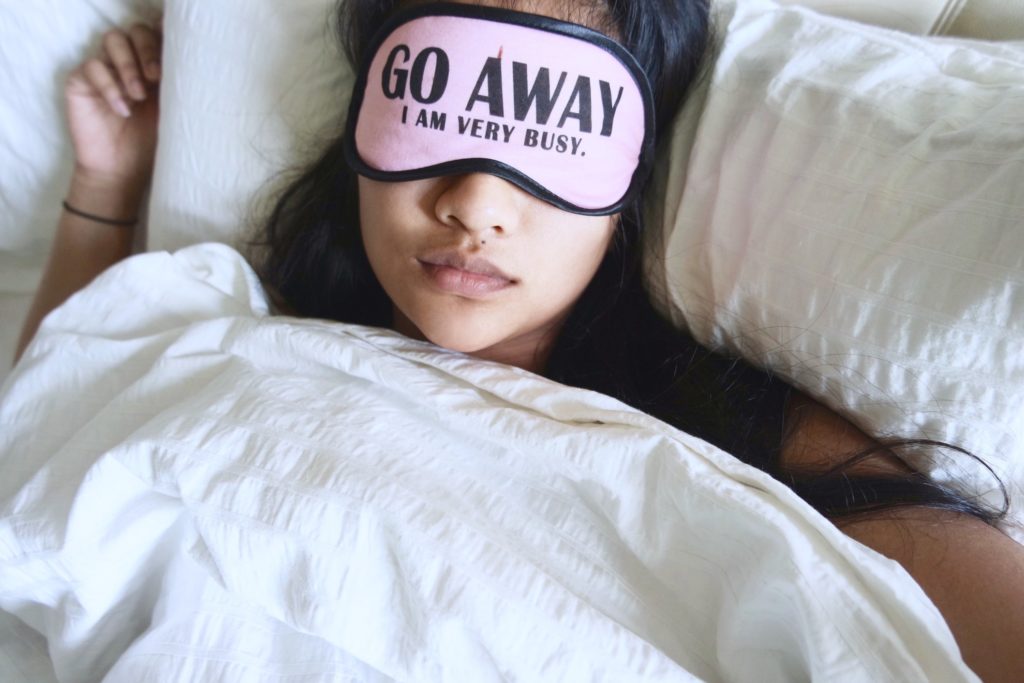
New high-tech sleep products
the best new high-tech sleep products
There you have it – the latest in sleep tech and sleep aids for these hyper-stimulating times. Buona Notte.
join our community
For access to insider ideas and information on the world of luxury, sign up for our Dandelion Chandelier Newsletter here. And see luxury in a new light.
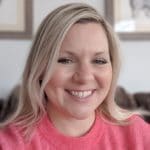
Join our community
For access to insider ideas and information on the world of luxury, sign up for our Dandelion Chandelier newsletter. And see luxury in a new light.

